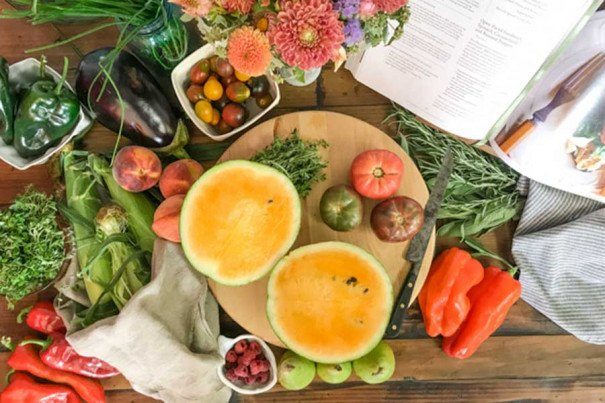This Local Online Farmers Market Can Help You Eat Healthier and Reduce Your Carbon Footprint

Courtesy of Philly Foodworks
Dylan Baird, the CEO and Co-Founder of Philly Foodworks, the largest online local food market in the tristate area, knows that everyone has a personal connection to food. Food is the centerpiece at holiday gatherings and family meals and an important part of many of our favorite memories.
“We had a customer whose last name was Nardello — she told us her grandfather was Jimmy Nardello, and we sold her Jimmy Nardello peppers,” Baird says. “Prior to shopping with us, she had never seen them for sale anywhere else.”
Stories like these get to the heart of what Philly Foodworks is about — working with local farmers to sell local vegetables, fruit, produce and more to those in the Greater Philadelphia area, thus strengthening their connection to the places they call home.
Here’s what you need to know about buying local from Philly Foodworks and why doing so can create a better planet and help you live a healthier life.
Local Food on Demand
As an online neighborhood farmers market, Philly Foodworks coordinates with local farmers and suppliers to provide its customers fresh food on demand. Through customizable food boxes, hand-picked subscriptions and a la carte offerings, the service allows you to decide where and how often you want your food delivered. Customers are assigned a specific day for a home delivery, and windows for receiving orders fall between 10 am to 8 pm.
“Food is our connection to ourselves, our planet and our community,” Baird says. “It’s about supporting local economies and communities and the environment.”
Philly Foodworks also partners with farms that use ethical practices, so you never have to worry about where your food is coming from. The market chooses its vendors by evaluating the quality of their products, how farmers treat their workers and the environmental impact of their crop production.
These farmers are also consulted throughout the crop growing and sourcing process and coordinate with the Philly Foodworks team to work through pricing, food quantity and quality assurance.
“We’re working with local farmers who are thinking about their community,” Baird says. “There’s a sense of stewardship and responsibility. There’s also certain values and not wanting to exploit people and the environment. That happens naturally because of who’s running the farms we work with.”
Maintaining a Healthier Diet with Philly Foodworks
Buying local means eating healthier — the longer it takes for a fruit or vegetable to go from a farm to your kitchen, the fewer nutrients it will have. Overall, your immune system can better fight illnesses when you give it a higher amount of nutrients.
And with an online market, because the food you order travels a smaller distance, it remains fresh and retains more nutrients than, for instance, a banana traveling through distribution centers before eventually arriving at a grocery store.
“Local systems are stronger and more reliable,” says Anne Steelman, the Vice President of Philly Foodworks. “The flavor of a locally grown strawberry really is different from one picked underripe and shipped across the country.”
Shorter travel times also mean a smaller carbon footprint. The majority of food sourced and sold by Philly Foodworks is grown organically within 150 miles of Philadelphia, so you can get that local flavor. After all, it’s always better to know that the ingredients you cook for your family are made nearby and with care.
“Shopping locally isn’t just about feeling good,” Steelman says. “It’s about changing the way we think and eat. Knowing our farmers, their practices and having this relationship allows us to be connected to our food and our customers.”
More Opportunities to Buy Local
As it stands, Philly Foodworks can deliver to any address within 25 miles of Philadelphia as well as into Wilmington. But when summer comes, customers often flock to the coast and might look elsewhere for their food sources. However, with the company’s expansion to the Jersey Shore starting early this summer, deliveries will now be accepted from Brigantine South to Cape May.
“We all love to barbecue with our friends and family and have food celebrations, so why not have the best ingredients possible?” Baird says. “We want to be an option for people who would usually stop at the farm stand on the way to the beach but then find they need to restock.”
Philly Foodworks is also expanding. With the company’s April move to a larger centralized North Philadelphia warehouse, more space means more capacity and the ability to support a wider number of farmers. The expansion will also allow for greater community outreach with the opening of an on-site commercial kitchen for community meals as well as with a retail market for EBT/SNAP recipients to shop.
“This is about building a resilient food system for Philadelphia,” Baird says. “Food is nourishing for our bodies and souls and connects us to our communities. We’re fully invested in being a food system that has all these values and will be here for a long time.”
This is a paid partnership between Philly Foodworks and Philadelphia Magazine